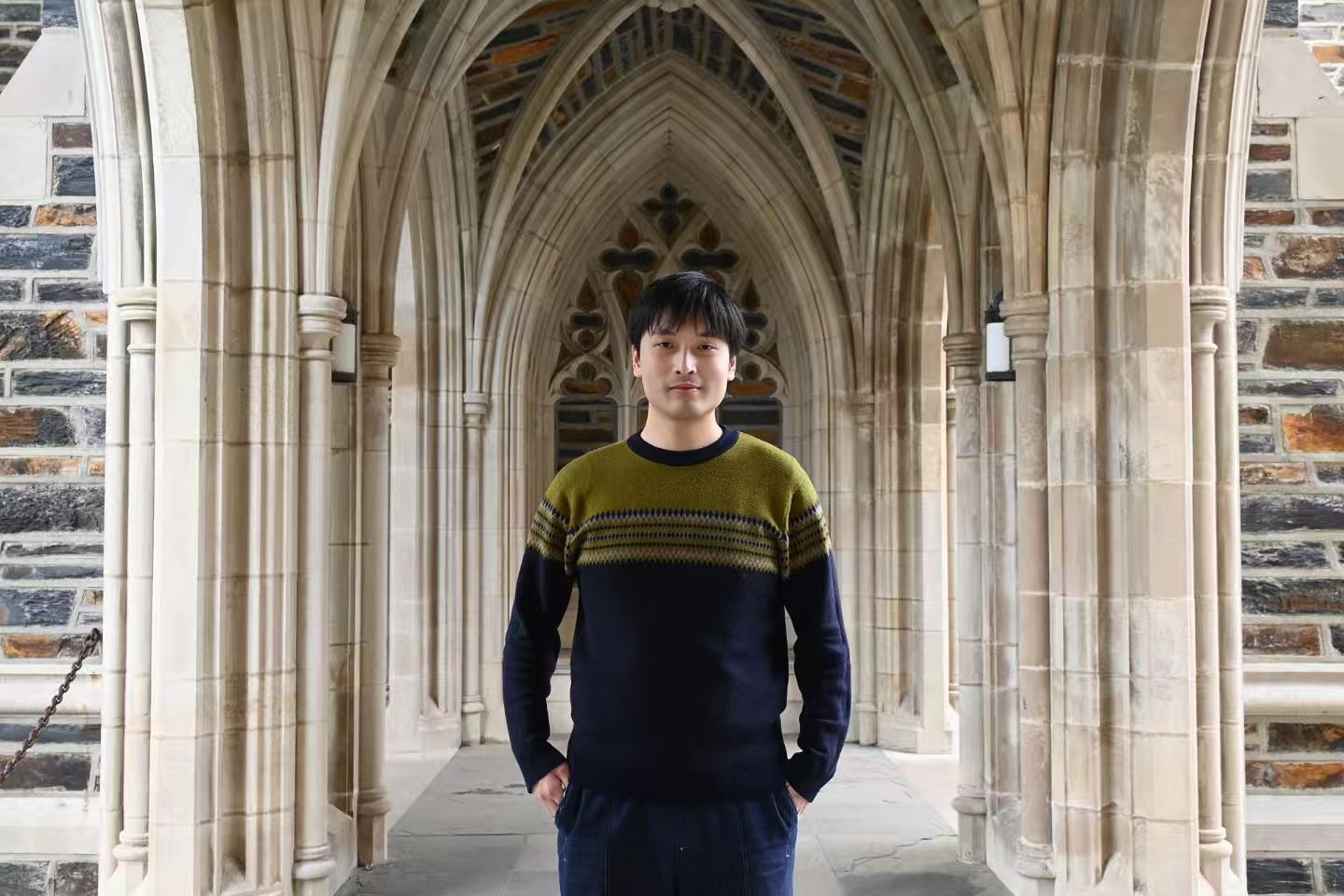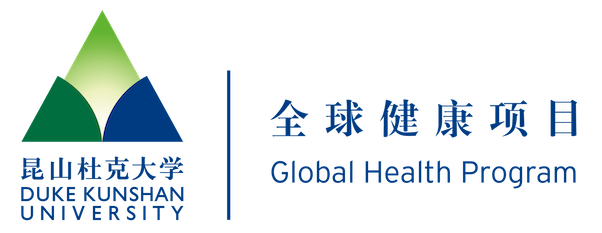From earning a bachelor’s degree in economics and management at King’s College London, to completing a Master’s in Global Health at Duke Kunshan University, and ultimately securing an offer from EY-Parthenon, Eddie (YiCheng) Pan has always been guided by a clear sense of career direction. By actively seeking interdisciplinary knowledge and strategically planning internships relevant to his goals, he has paved a personalized career path in the healthcare and pharmaceutical consulting field—one that aligns with his abilities, experiences, and interests, while also meeting real-world market demands.
“When people ask me for job-hunting ‘tips,’ I often clarify that the most important factor is early planning. I didn’t start searching for career seeking tips at the last minute when job hunting began. Instead, from my undergraduate course selections to my choice of master’s program and every internship experience, I was continuously exploring, consulting, and reflecting—gaining a realistic understanding of the workplace, strengthening my skill set, and ultimately making choices that truly fit my aspirations and ideals.”

Bridge major tracks to have an interdisciplinary background
While studying Economics and Management at King’s College London, I developed a strong interest in the healthcare field. In the second semester of my third year, I took a course titled Comparative Public Policy, where I gained a systematic understanding of healthcare policies in China, the UK, and other European countries.
My internship experience at a pharmaceutical company, coupled with witnessing the COVID-19 pandemic, made me realize how closely healthcare is intertwined with everyone’s lives—and how much specialized knowledge it requires. I knew that to enter this field from a different academic background, I first needed to build a more interdisciplinary foundation.
Choosing to pursue a Master’s in Global Health at Duke Kunshan University was a carefully considered decision. As a joint program between Duke University and Wuhan University, it combines the strengths of both Chinese and American education systems. It allowed me to stay grounded in China—gaining familiarity with the local job market and building regional networks—while also experiencing the U.S. academic environment at Duke University. Although I had several offers from other universities at the time, the DKU program’s philosophy of “bridging East and West, rooted locally” perfectly aligned with my goal of returning to China to develop a career in the healthcare and pharmaceutical industry.
Plan your internships by matching the capacity puzzles
Once I decided to pursue a career in the healthcare industry, I planned every internship experience around that goal—step by step, identifying my capacity gaps and building practical skills along the way.
My first internship was in the business development department of a pharmaceutical company, marking my initial entry into the healthcare industry. By collecting, analyzing, and organizing market data across sectors such as biopharmaceuticals, generics, and medical devices, I built a foundational understanding of the healthcare market. Working with overseas clients also sharpened my communication and execution skills. Though the task of this internship was very basic, it helped me build a basic understanding framework of the pharmaceutical market.
For my second internship, I joined a consulting firm as a consulting intern. While the role was not directly related to healthcare, it gave me first-hand insight into how consulting firms operate – from breaking down client needs and conducting market research to preparing meeting notes and final reports. Through this experience, I not only grasped the logic of consulting workflows but also honed transferable skills such as creating professional presentations and structuring analytical thinking.
During my third internship, I targeted the healthcare research division of a securities firm. Here, I integrated my undergraduate background in finance with my graduate-level expertise in global health. My responsibilities included financial modeling and valuation analysis for pharmaceutical companies, conducting market research, and preparing reports and presentations. I also independently authored research briefs, which deepened my understanding of both the healthcare and financial industries.
Throughout my internship journey, I have always been guided by a goal-oriented approach. On one hand, I planned my internship path progressively—from simple to complex—focusing on skill accumulation rather than merely chasing companies with “big-brand”. On the other hand, I made it a priority to engage proactively with colleagues, clients, and mentors—seeking advice from alumni and industry professionals to better understand career pathways and key competencies in the healthcare sector. By comparing these insights with my existing skills, I was able to select subsequent internships strategically and continuously bridge my capability gaps.
Maximize and utilize what I learned in the classroom
Having accumulated practical experience in the healthcare industry, I found my coursework much more engaging and relatable. I could clearly see how classroom knowledge and skill training would apply directly to my future work, giving me a strong competitive edge during both internship applications and job hunting.
For example, core courses in the Global Health master’s program such as Qualitative and Quantitative Research Methods proved highly practical. Even outside of academia, these skills are essential in consulting and healthcare industries. In pharmaceutical consulting, for instance, data analysis and interpretation are key. Professor Wu Chenkai’s course Biostatistics and Epidemiology taught me how to use Stata for data analysis and interpretation—tools and methods I could immediately apply in my professional work. Interviewing is also a common research approach in consulting. The training I received in qualitative research helped me learn how to design interview outlines, guide interviewees to respond thoroughly and constructively, and analyze and code qualitative data effectively.
Another core course, Health Systems and Policy, provided a comprehensive understanding of the healthcare systems and policy frameworks in China and other developing countries. During my semester at Duke University in the U.S, I also had the opportunity to take classes with students from the University of North Carolina at Chapel Hill, where we explored and discussed the U.S. healthcare system together. These classroom experiences and cross-cultural exchanges greatly benefited me during job interviews later on.
For instance, when interviewing with multinational pharmaceutical companies, candidates were often expected to have an informed perspective on healthcare systems and policy issues. I was once asked how much drug prices typically decrease after being included in the National Reimbursement Drug List—a question I could confidently answer thanks to what I had learned in class. Such knowledge is fundamental for anyone entering the healthcare industry.

Improve the chances of winning a matched job
Drawing on my combined background in Economics (undergraduate) and Global Health (graduate), along with relevant internship experience, I focused my job search on three directions: healthcare consulting, pharmaceutical market research positions in securities firms, and management trainee programs in pharmaceutical companies. These fields value interdisciplinary talent and offer ideal platforms for professional growth at the early career stage. Based on my experience, here are a few key insights for future job seekers:
1. Use LinkedIn strategically.
By searching for company profiles on LinkedIn, you can identify their target schools. Applicants with strong academic backgrounds and relevant internship experience often stand out. Many firms have “target schools,” and LinkedIn allows you to view employees’ educational backgrounds and alumni representation. If your school has existing alumni at a company, your chances of success may increase—though this is not an absolute rule.
2. Seek out “unofficial information.”
Social media platforms like Rednote were invaluable sources of insight for me. When official channels provided limited information, I turned to experience-sharing posts for advice on company culture, interview preparation, and recruitment processes. For consulting and healthcare consulting positions, case analysis skills are crucial, as both group and managerial interviews often include case study components. By leveraging these informal insights, I could tailor my preparation and perform more confidently in interviews.
3. Steady Progress in Job Applications
Different firms have different application systems—some allow only one position per application, while others permit two. When given two choices, I typically selected one aspirational department and one as a safety option. This wasn’t about undervaluing the latter but about managing mindset—having a “backup” allowed me to stay calm and confident during interviews.
I am now working at EY-Parthenon (EYP) in the Transaction Strategy & Execution department. My academic background aligned closely with the position’s requirements, and after several competitive interview rounds and rigorous assessments, I successfully received the offer.

Looking back, I’m deeply grateful to the Duke Kunshan University Global Health Program for expanding my possibilities. It’s a place rooted in China yet connected to the world, offering a unique cross-cultural learning experience. I studied alongside classmates from diverse academic backgrounds—business, literature, medicine, and more—and after graduation, we each went on to thrive in fields like the internet industry, pharmaceuticals, and consulting. To current and future students, I’d say: cherish your time at Duke Kunshan, make the most of every opportunity, and fully embrace every possibility that comes your way.
Written by Wuyue Qian

